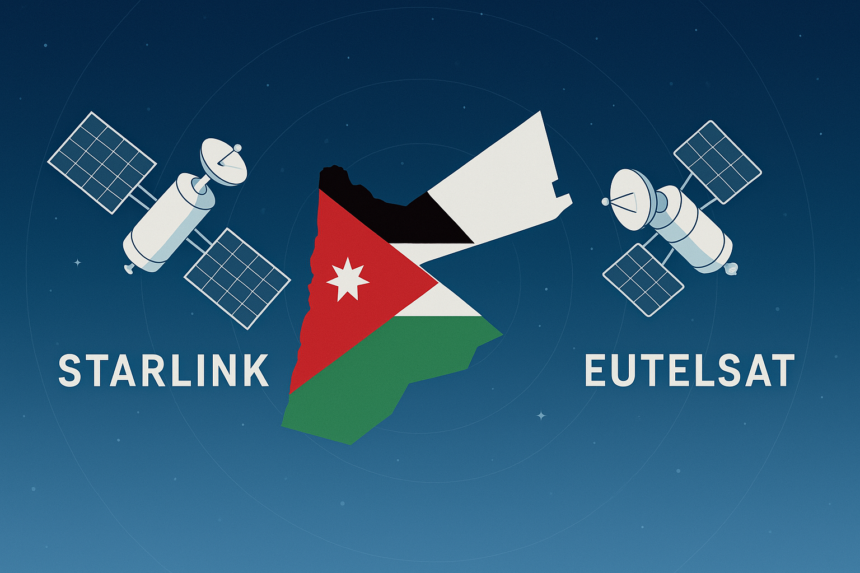As the demand for reliable internet continues to increase worldwide, satellite internet providers like Starlink and Eutelsat want to expand their services to regions with limited connectivity. Jordan, located in the heart of the Middle East, is one such country experiencing a surge in demand for high-speed internet services. The competition between Starlink and Eutelsat in Jordan is poised to transform the country’s digital landscape, offering more accessible, faster, and more reliable internet services, particularly in remote and underserved regions.
What’s Happening & Why This Matters
Starlink, a satellite internet service owned by SpaceX, has recently launched its service in Jordan, bringing low-latency, high-speed internet to the country. Starlink’s network, which consists of a constellation of low-earth orbit satellites, aims to provide internet connectivity to remote areas where traditional broadband infrastructure is either unavailable or too costly to install. With Starlink’s expansion into Jordan, consumers in remote villages and rural areas can now access high-speed internet, which was previously inaccessible due to the lack of traditional internet infrastructure.
Meanwhile, Eutelsat, a key player in the satellite communications industry, has partnered with Orange Jordan to launch its satellite internet service. This new offering, like Starlink, aims to provide reliable internet access to underserved areas. Eutelsat’s satellite technology allows Orange Jordan to deliver high-performance internet connectivity even in the most remote parts of the country, improving access to cloud services, education, and digital businesses. Orange Jordan plans to expand its satellite internet footprint by tapping into Eutelsat’s satellite network, complementing its existing 4G and fiber services, and bolstering its role as a leader in Jordan’s digital transformation.
Both companies target Jordan’s growing need for connectivity, especially in areas with unreliable broadband services. As Starlink and Eutelsat compete to win over customers in the region, they are focusing on providing not just internet service but digital solutions that will enhance access to education, e-commerce, and healthcare. In a country where internet access is critical for economic development, expanding satellite internet services offers tremendous potential to bridge the gap between rural and urban communities.
Starlink vs. Eutelsat | Battleground: Jordan
The competition between Starlink and Eutelsat in Jordan is already heating up, with both companies making strategic moves to expand their satellite internet services. With its strong backing from SpaceX, Starlink brings its reputation for high-speed connectivity and low-latency service to the market. Starlink’s goal as a global leader in satellite internet is to provide internet access to underserved and hard-to-reach areas, such as remote villages and mountainous regions.
On the other hand, Eutelsat, in collaboration with Orange Jordan, brings reliable satellite internet services backed by decades of experience in satellite communications. Eutelsat has a proven track record of offering cost-effective connectivity solutions, which could make it a strong competitor to Starlink. As Orange Jordan looks to enhance its 5G offerings, Eutelsat’s advanced satellite technology will complement its existing infrastructure and expand its footprint nationwide.
As both companies compete in Jordan, the market is bound to see improvements in service quality, affordability, and coverage, especially in rural and underserved areas. The demand for high-speed internet will only grow, and with Jordan being a key player in the Middle East’s digital transformation, the competition between Starlink and Eutelsat will have lasting implications for the region’s internet landscape.
TF Summary: What’s Next
The entry of Starlink and Eutelsat into the Jordanian market is set to revolutionize internet access in the country. As the competition between these satellite providers heats up, consumers and businesses in Jordan will benefit from better connectivity, affordable pricing, and improved service reliability. The expansion of satellite internet in Jordan is just one part of the global digital transformation. As both companies continue to grow and expand their networks, we expect these services to play a crucial role in improving digital equity and expanding economic opportunities across the country.
— Text-to-Speech (TTS) provided by gspeech


